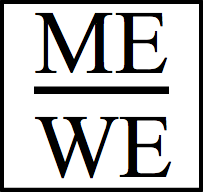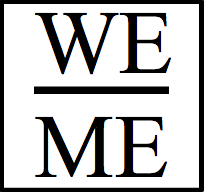I dropped two nukes on Dale’s divine deception argument in two previous posts, which I dubbed Fat Boy and Little Man, respectively. From the ashes Dale returned desperate and feeble fire. Out of respect for my worthy friend foe, I now respond with some a fallout clean up and hereafter promise ceasefire.
Dale’s Response to Little Boy
 In answer to my skeptical theist response to Dale’s divine deception argument, Dale says he’s not a fan of skeptical theist responses to the problem of evil. Ok, but that doesn’t tell us how the the noseeum inference in Dale’s argument is any good. This is a problem, for if the inference is no good, the “seems claim” that Dale acknowledges is crucial to his argument—i.e., that it seems that the Father, Son, and Spirit wrongfully deceived the ancients—loses probative force. To spell this out more clearly, Dale reasons as follows:
In answer to my skeptical theist response to Dale’s divine deception argument, Dale says he’s not a fan of skeptical theist responses to the problem of evil. Ok, but that doesn’t tell us how the the noseeum inference in Dale’s argument is any good. This is a problem, for if the inference is no good, the “seems claim” that Dale acknowledges is crucial to his argument—i.e., that it seems that the Father, Son, and Spirit wrongfully deceived the ancients—loses probative force. To spell this out more clearly, Dale reasons as follows:
- If it seems that ~p, then, probably, ~p.
- It seems that the Father, Son, and Spirit had no morally sufficient reason for deceiving the ancients.
- So, probably, the Father, Son, and Spirit had no morally sufficient reason for deceiving the ancients.
- If it seems that there is no morally sufficient reason for an act of deception, that deception seems wrong.
- So, the Father, Son, and Spirit’s act of deception seems wrong.
Premise (1) is the general form of a noseeum inference, and the inference from (2) to (3) is the particular instance of the noseeum inference in Dale’s argument. And for reasons I explained before, it is a bad instance. Once you realize that if the Father, Son, and Spirit did have morally sufficient reasons for deceiving the ancients, such reasons would not be obvious or transparent to us, it should no longer seem to you that there are no such reasons. You ought to update your background knowledge in light of lurking defeaters. A circular tabletop might at first seem ovular at an angle, but once you realize it is the angle at which you view the tabletop responsible for its seeming ovular, the tabletop should no longer really seem ovular to you at that angle. Dale makes an enthymematic leap from (2) to (5), but I take it that (4) is a reasonable enough bridge. But because the seems claim in (2) is undermined, the seems claim in (5) goes with it.
Dale’s Response to Fat Man
 Dale doubts there could be group persons, but grants the possibility for the sake of argument. Even so, Dale thinks the ancients did not in fact view God as a group person. He punts to passages in the Bible where it seems to be implied that the ancients believed God to be a person in the modern sense; i.e., an individual, private self—the kind of person that cannot be a group person.
Dale doubts there could be group persons, but grants the possibility for the sake of argument. Even so, Dale thinks the ancients did not in fact view God as a group person. He punts to passages in the Bible where it seems to be implied that the ancients believed God to be a person in the modern sense; i.e., an individual, private self—the kind of person that cannot be a group person.
Because we have a fairly fixed concept of what a person is, I admit that an interpretation where that concept appears to be held by the ancients too recommends itself as natural and plausible to us. But there is an important difference between us and the ancients that demands a more cautious approach to interpreting such passages. To illustrate the difference, consider a tale of two cultures. In  one, the individual is prior to the group. There are abstractions made about the group as a whole, but it is the individual person that is the fundamental social unit. People of this culture will find it convenient for practical reasons to speak as if there were group persons, but whether there really are or really could be group persons would be a largely foreign consideration to them. In the other culture, things are reversed: the group, not the individual, is
one, the individual is prior to the group. There are abstractions made about the group as a whole, but it is the individual person that is the fundamental social unit. People of this culture will find it convenient for practical reasons to speak as if there were group persons, but whether there really are or really could be group persons would be a largely foreign consideration to them. In the other culture, things are reversed: the group, not the individual, is  seen as the fundamental social unit. It is the individual person that is an abstraction, for his identity depends on the group of which he is a part. People of this culture will find it convenient for practical reasons to speak as if there were individual, private selves, but whether there really are or really could be private selves would be a largely foreign consideration to them.
seen as the fundamental social unit. It is the individual person that is an abstraction, for his identity depends on the group of which he is a part. People of this culture will find it convenient for practical reasons to speak as if there were individual, private selves, but whether there really are or really could be private selves would be a largely foreign consideration to them.
The first culture in the tale should sound most familiar, as we today are good representatives of it. The ancients, on the other hand, were good representatives of a “collectivist” culture more like the second. There is a huge literature on this, one good example being Bruce Malina and Jerome Neyrey’s Portraits of Paul: An Archaeology of Ancient Personality (Louisville, KY: Westminster Knox Press). If they and other scholars are right, we cannot interpret the passages Dale cites at face value for risk of reading our modern concept of personhood off their surface. The safest conclusion is that, at most, the ancients spoke of God at times as if He were an individual, private self, for practical reasons, not because they really believed he was such a self. As collectivists, the question of whether they believed there were or could be such selves was likely foreign to them. After all, we as good individualists take that stance with respect to groups. Is it so hard to imagine that good collectivists might take that stance with respect to the individual?
So I still think Dale is not being appreciably sensitive to the epistemic gap between the ancients and us with regard to concepts of personhood. Our concept of a person as a private self—an autonomous, individual center of consciousness—began to appear in nascent form in Augustine and Boethius, developed in the reflective womb of Western theology and philosophy, came to full term in Descartes, and was midwifed during the Enlightenment. There may have been germs (sperms?) of the concept at earlier times (if not just ‘as if’ery talk), but the caution against anachronistically reading our modern concept of personhood—a concept that had a gestation period of over two millenia—back into the minds of the ancients cannot be overemphasized.
To summarize, then: there is enough evidence that our individualistic concept of personhood was foreign to the ancients that Dale’s divine deception argument doesn’t work. This is true even if the ancients did not in fact believe God was a group person (and I never claimed that God revealed himself as a group person). All that matters is that their concept of personhood did not exclude the possibility that God be a group person. And to insist that it did—on the grounds that ours does, or that the concept of personhood is analytic—is sound hermeneutics only to an analytic philosopher!

Pingback: the dud of "corporate personality" or group persons - Trinities
Pingback: Tuggy Bombs | Appeared-to-Blogly
Comments are closed.